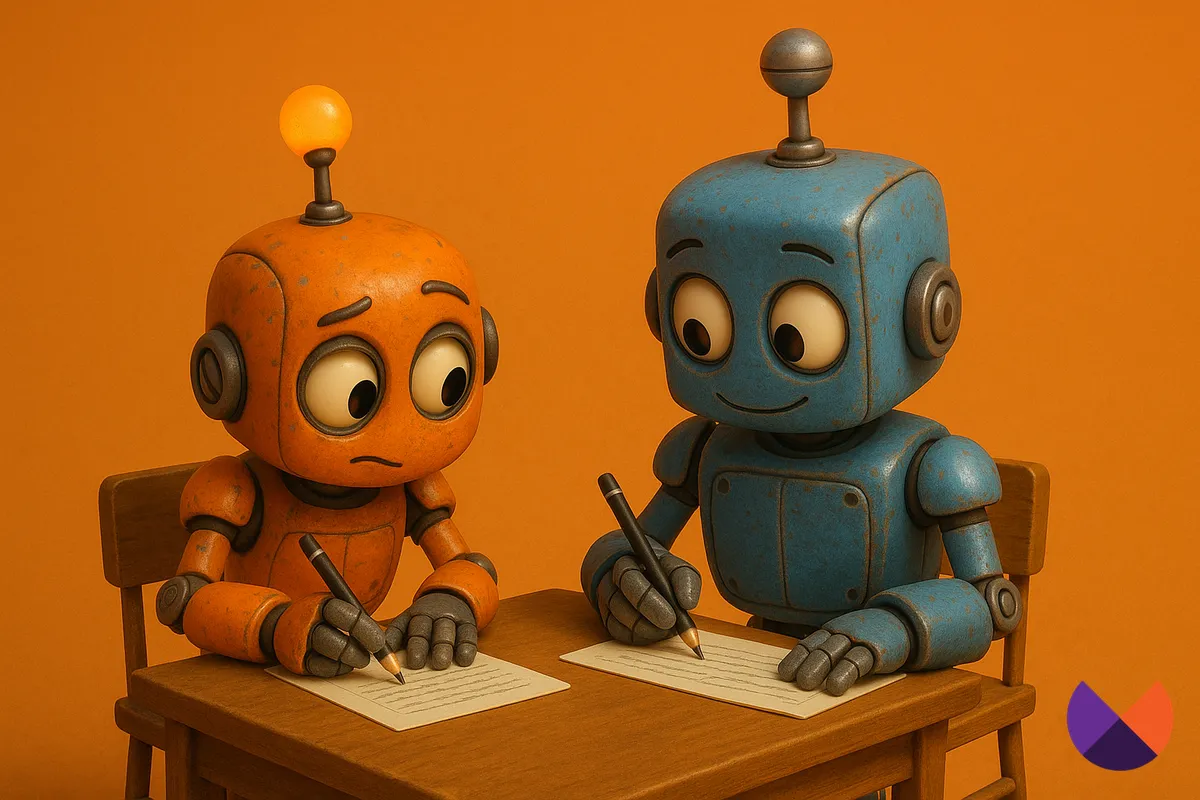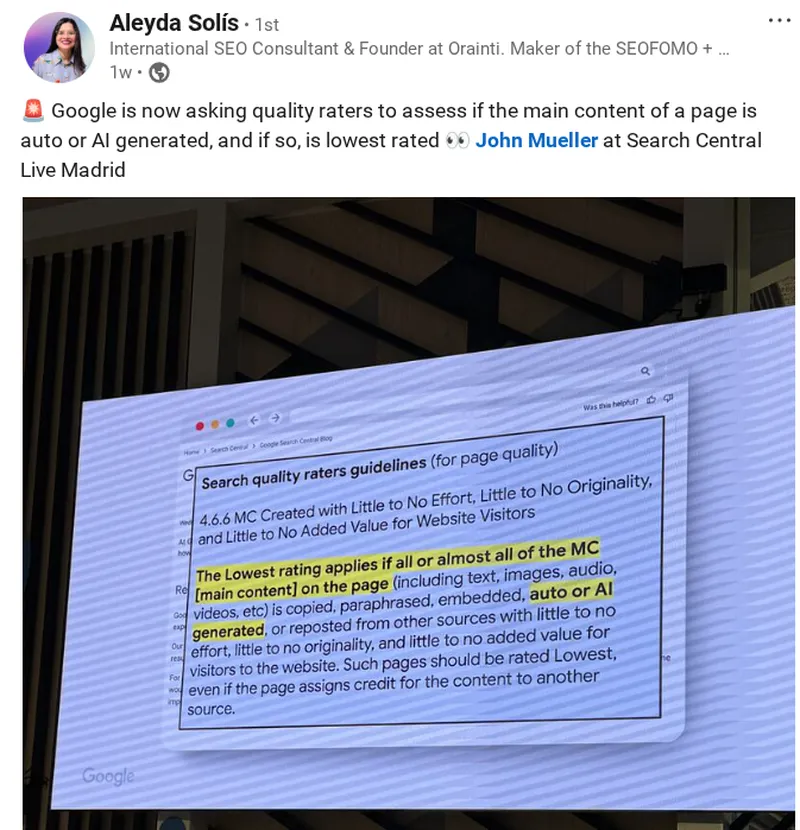I have been working on using AI to improve content for a client and help them build out topical clusters of helpful content. My client asked me whether it is safe to use AI in creating content or whether it would cause a problem with Google Search. I thought I'd share in a blog post what I told them as it's a question that comes up a lot.

Google cares about quality, not how the post was written
In a post on the Google Search Central blog, they tell us that Google Search is "rewarding high-quality content, however it is produced."
Here are some quotes from this article that I think are relevant:
- "Rewarding high-quality content, however it is produced."
- "however content is produced, those seeking success in Google Search should be looking to produce original, high-quality, people-first content demonstrating qualities E-E-A-T."
- "Creators can learn more about the concept of E-E-A-T on our Creating helpful, reliable, people-first content help page. In addition, we've updated that page with some guidance about thinking in terms of Who, How, and Why in relation to how content is produced. Evaluating your content in this way, whether you're using AI-generated content or not, will help you stay on course with what our systems seek to reward."
- "Using AI doesn't give content any special gains. It's just content. If it is useful, helpful, original, and satisfies aspects of E-E-A-T, it might do well in Search. If it doesn't, it might not."
If you're using AI to create low quality content at scale, that's not likely to go well. But, if you are using AI to help you create truly helpful content, especially content that demonstrates your experience and expertise, then this is perfectly acceptable!
But aren't the quality raters instructed to determine whether content is AI generated?
Aleyda Solis posted this slide from a talk from Google employee John Mueller at a recent Google Search Central event in Madrid.

I have seen this circulated as evidence that AI content will get you penalized. It's important to read the full paragraph above. I've bolded the parts I think are most important:
"4.6.6 MC Created with Little to No Effort, Little to No Originality, and Little to no Added Value for Website Visitors.
The Lowest rating applies if all or almost all of the MC [main content] on the page (including text, images, audio, videos, etc.) is copied, paraphrased, embedded, auto or AI generated, or reposted from other sources with little to no effort, little to no originality and little to no added value for visitors to the website. Such pages should be rated Lowest, even if the page assigns credit for the content to another source."
The raters are not looking specifically for AI generated content to flag as examples of lowest quality content. Rather, they are looking for examples of content that is lacking originality, copied or paraphrased from another source, whether it was created with AI or not.
Here's more on how Google's Quality Raters work.
How can we use AI to create original content?
You can use AI to help you create some incredible content. However, if your plan is to prompt an LLM with "Write me an original article about [topic]," you're likely to get content that is simply paraphrased from knowledge that is already known.
Here are a few prompts I've used to work with AI to help me create good content:
- Take what I've written here and rewrite it to be more concise.
- Is what I've written accurate? Could I improve it? Does it need clarification?
- Help me finish this sentence. I'm trying to get this point across [rambling] but don't know how to word it.
- Do deep research to help me understand the questions surrounding this topic.
- Help me better understand this research paper and explain it in layman's terms.
- Help me understand which entities are related to the topic I'm writing about. What related entities should I include in my writing?
- Brainstorm with me, asking me questions one at a time, to help me think of ways to add my original insight and expertise to this article [paste in what I've written so far]
- Create an interesting and helpful chart out of this data...
- Search for what has been written on this topic on the web. Help me come up with ideas to write about on this topic that are likely to be searched but have not been well covered.
- Create an image for this post...(Like for this post, I prompted, create an image that is a good size for a blog post, of two robots doing homework and one is copying from the other. Optimize it to be 1200px wide and suitable for the web.)
- What are the 3 most important and interesting things I've written in this article? Write 1-2 sentences that use those bits. (This is how I wrote the top part of this article you are reading now.)
In summary
You can use AI to help you create great content, but Google does not like it if you're using AI as a way to create low-effort, unoriginal content. I find that AI helps augment my thinking and creativity.
If you're not sure whether the content you are creating with AI is high quality, here is a good question to ask yourself:
- Is this page truly adding to the body of information that exists on the web for this topic? Or is it simply rewriting what others have written?
I hope this helps! I'd encourage you to experiment with finding ways to use AI to improve your writing and creativity.
Marie



Comments are closed.